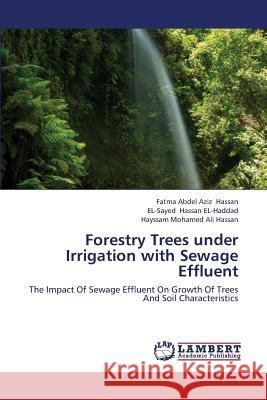Forestry Trees under Irrigation with Sewage Effluent » książka
Forestry Trees under Irrigation with Sewage Effluent
ISBN-13: 9783659428692 / Angielski / Miękka / 2013 / 80 str.
Water resources in Egypt are limited to meet the increasing demands for agricultural extensions. Application of wastewater to lands is one of the oldest and the cheapest methods for treatment and disposal of wastewater. The wastewater provides effective source of nutrients that crop root are able to assimilate. The use of treated wastewater for afforestation, offers reduction of environmental pollution as well as timber productivity is considered an important resource in the local economy. Irrigation of forest trees with wastewater raised for fuel and timber. Growing the green belts around the cities with forest trees under wastewater irrigation also helps revive the ecological balanced and improves environment quality by self-treatment of wastewater through the application and forest irrigation. Horizontal extension is one of the main targets for enlarging the cultivated area in Egypt. However the direct application of these substances on agricultural land is limited by the extent of contamination with heavy metals, toxic organic chemicals and pathogens. However, pollution problems could be alleviated by selecting crops with a low rate of uptake or by selecting non-edible crops.











